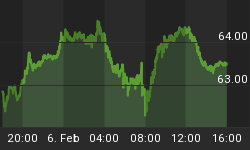The 1930s was the birth of Keynesianism. Economists needed a simple answer as to why they had been so wrong. Since then, the U.S., and much of the rest of the world, has endured 70 years of economic concepts that have generated a continuous lack of success in economic matters. Most professions would seriously review their methodology when faced with as many repeated failures. Not so for the economics community. They just keep coming with more of the same failed policies.
Consider their advice at the present. Too much reliance on debt caused a considerable portion of the current economic mess. So, economists now advise issuing more debt. For you see, now will be different. This debt spending will be for wise ideas generated by themselves and those darlings running governments. See the difference?
Easy money was a goodly part of the last two economic meltdowns. Easy money gave us the internet bubble and burst. Easy money gave us the housing market bubble and burst. If easy money is the solution to economic ills, why are two successive economic bubbles and burst associated with easy money? Does easy money have unintended consequences that are being ignored, again?
The world is really at one of those points in time where the community of economists must prove that they can get it right once or twice a century. Creating financial bubbles that burst, producing massive financial carnage, really does not take a degree in economics. Any out of work mall cop could accomplish the same. But enough of that criticism, economists have been good to some us, especially those that did not take their advice. Did not their advice create a financial environment in which Gold rose from less than $300 to more than a $1,000?
Obama's administration is already providing that much promised change. Bush's current annual Federal deficit of $1.3 trillion was created after taking office. Obama is creating an additional deficit just shy of a trillion dollars before taking office. See, already change that is more efficient. But, who buys the $2.5 trillion of debt to be created in Obama's first year is an matter of great importance, and may be the more important change.
Consideration of who buys the debt is an important matter. For some time, the Federal Reserve has not had to monetize much of the debt of the U.S. government. Foreign central banks have been both willing, and sufficiently gullible, to purchase much of that debt. That situation may change as governments around the world embark on their own economic stimulation plans. China, for one, is committed to almost $600 billion to stimulate domestic demand. Could the Federal Reserve be forced by political considerations to monetize the massive Obama debt mountain?
But note, the Federal Reserve has not been idle. It has been monetizing assets wherever they can be found. From that effort, a massive burst in the U.S. money supply has developed. This week's chart, found below, portrays that money supply growth. Redline, using the right axis, is the annualized rate of change in the U.S. money supply, M-1, NSA. As is readily apparent, U.S. money supply growth has exploded, and is now running at more than a 40% annualized rate. And as money supply growth TODAY influences TOMORROW'S prices, we can reasonably expect higher FUTURE inflation in the U.S.

In simplest of terms, a lot of U.S. dollars are being created. Demand for dollars in this world is limited. It has an upper limit. That supply of U.S. dollars may be starting to over power the demand for dollars. In the chart above is a second line that represents our dollar index, a better measure than the improperly designed popular index.
This vast quantity of money being created seems to becoming dominant. That supply of money may be capping the value of the dollar, and will likely over come it. Money supply growth this excessive can only push down the value of the currency, in this case the U.S. dollar. The dollar index seems already to be topping out. Investors must answer an important question. Has any currency created in such abundance ever appreciated?
Two U.S. Presidents have been very good to Gold investors. Obama is likely to continue that run of Gold prosperity. $2.5 trillion of debt, largely to be financed by Federal Reserve monetization, is indeed change. No economic hegemon has ever been so financially irresponsible. While such debt monetization has been practiced in "banana republics" for over a century, it is new to the market for U.S. dollars. As a consequence, the clearest investment theme for the Obama era is Gold, bought on any and all price weakness.
GOLD THOUGHTS come from Ned W. Schmidt,CFA,CEBS as part of a joyous mission to save investors from the financial abyss of paper assets. He is publisher of The Value View Gold Report, monthly, and Trading Thoughts, weekly. To receive these reports, go to http://home.att.net/~nwschmidt/Order_Gold_EMonthlyTT.html.















